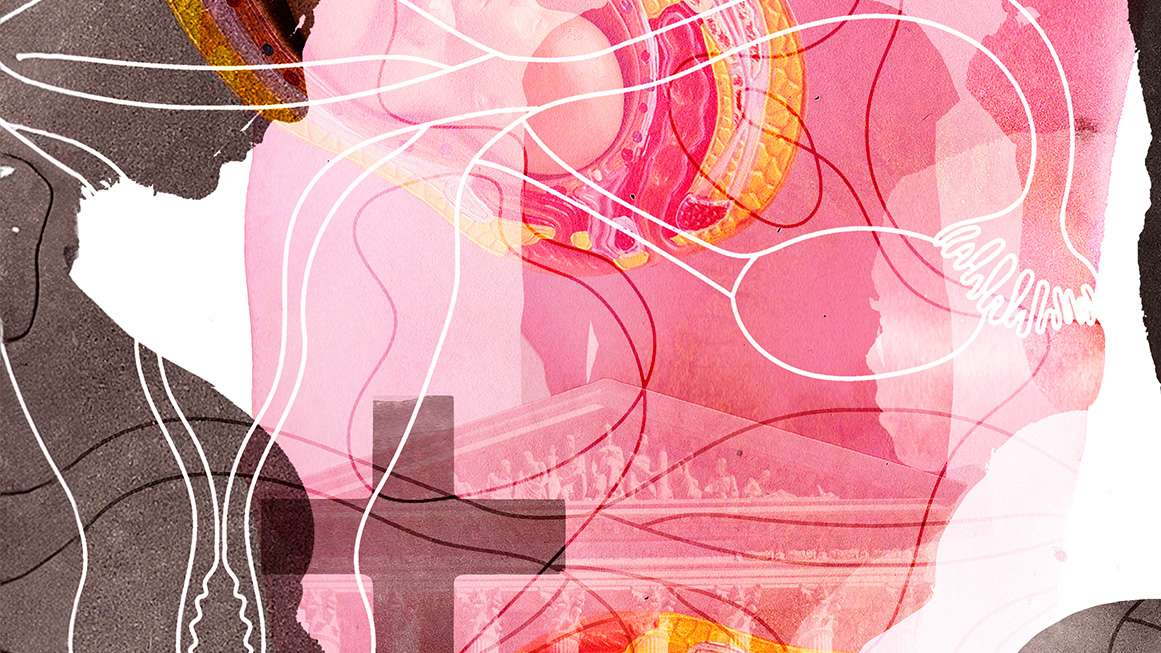Audra Worlow considers herself pro-life. A 32-year-old stay-at-home mom in Ohio, she takes her Catholic faith seriously and is against IVF, surrogacy, and abortion. However, she is concerned about states’ new ability to ban abortion at any point in pregnancy following the Dobbs v. Jackson Women’s Health Organization decision.
Worlow worries about the impact of abortion bans on women’s health, citing cases like Brittany Watts in Ohio where medical intervention was denied, resulting in tragic outcomes. She believes in giving doctors the freedom to make medical decisions and is concerned about the potential consequences of restrictive abortion policies.
Despite her pro-life beliefs, Worlow questions the effectiveness of abortion bans and is hesitant about using the legal system to address the issue. She emphasizes the importance of considering both the lives of babies and women in discussions about abortion.
Following the Dobbs decision, there has been a shift in public opinion towards pro-choice views, even among individuals who personally oppose abortion. Many Americans, like Worlow, find the labels of “pro-life” and “pro-choice” inadequate to fully capture their nuanced beliefs on the issue.
Surveys show that a majority of Americans support some level of abortion access, with a significant portion believing in the rights of embryos and fetuses while also advocating for reproductive freedom. The complexity of views on abortion highlights the need for a more nuanced understanding of the issue beyond binary labels.
Their opinions on the morality and legality of abortion vary depending on the situation. In a recent Pew poll, 25 percent believed abortion should be legal in all circumstances, while 8 percent said it should be illegal in all cases. The majority, 66 percent, fell somewhere in between these extremes.
There is evidence that many people have conflicting views on abortion. For example, over half of those who support abortion rights also believe that the timing of the abortion should be a factor in determining its legality. Similarly, many who oppose abortion would make exceptions in cases of rape or when the woman’s health or life is at risk.
In recent years, support for legal abortion has been on the rise, with more Americans identifying as pro-choice. Young adults, in particular, are increasingly in favor of legal abortion, with a majority of those aged 18-29 supporting it in most or all cases. This shift in opinion may be influenced by exposure to stories about the realities of abortion and the potential consequences of abortion bans.
Some individuals who identify as pro-life are concerned about the impact of abortion bans on women’s health and well-being. They worry that such laws could lead to dangerous situations, such as black market abortions or medical professionals being hesitant to provide life-saving care due to legal restrictions. Others emphasize the importance of bodily autonomy and believe that decisions about reproductive health should be left to individuals and their healthcare providers. “The main issue at hand is bodily autonomy,” he asserts.
“My fellow Catholics often bring up the rights of the fetus,” Randazza acknowledges. “I agree that a fetus is a living being and deserves rights. It’s unfortunate that it cannot have them,” he adds. “But the only way for a fetus to have rights is if we shift the government’s jurisdiction from outside your body to inside your body. Once they have that control inside your body, there are no limits to what they can do.”
“The same government that can prohibit abortions also has the power to mandate them,” he continues.
Randazza, a devout Catholic and pro-life advocate, is concerned about using religion to compel others to take social action, fearing it could lead to religious majority rule in ways he does not support. Quoting 2 Corinthians 3:17, he emphasizes the connection between God and liberty.
Many individuals I spoke with shared the belief that the morality of abortion should be left between individuals and a higher power.
Ali Elwell Zaiac, a firefighter and mother in Vermont, was raised in a fundamentalist environment and later studied theology. She and her husband, both pro-life, decided to donate unused embryos from their IVF process. Zaiac believes in the importance of free will given by God, emphasizing that individuals’ choices are between them and God. She highlights the difficulty of pregnancy on the body and the associated health risks.
Despite personal opposition to abortion, many individuals expressed discomfort with making that decision for others.
For those who identify as “pro-life, but…” the ultimate goal is a world without abortion. However, many recognize the need for practical approaches to address unintended pregnancies and the consequences of bans.
Instead of relying on bans, individuals like Evans prefer empowering people through education and access to contraception. Zaiac acknowledges the historical dangers of unsafe abortions and emphasizes the importance of keeping people alive.
Concerns about the impact of abortion bans on child welfare and the adoption system were also raised. Flatley, a child welfare advocate, warns that bans could lead to neglect and abuse of children, as well as strain on the adoption system.
Finding common ground on abortion has become increasingly difficult due to political polarization. Both parties tend to focus on differences rather than areas of agreement. However, there is considerable common ground among Americans on the issue.
Most Americans support limitations and exceptions on abortion, trust women and medical professionals, and recognize the complexity of unwanted pregnancies. They are capable of separating their personal beliefs on abortion from their views on legality.
Overall, Americans lean towards moderation and libertarianism on abortion, seeking laws and candidates that reflect this nuanced approach. The politics of abortion in America need to better reflect the actual views of the population. When the Supreme Court overturned Roe v. Wade, anti-abortion activists thought it would be a turning point for their cause. However, the impact was not what they had anticipated. This article was first published with the title “‘I’m Pro-Life, but…'” and discusses the current state of abortion politics in the United States.
Source link




